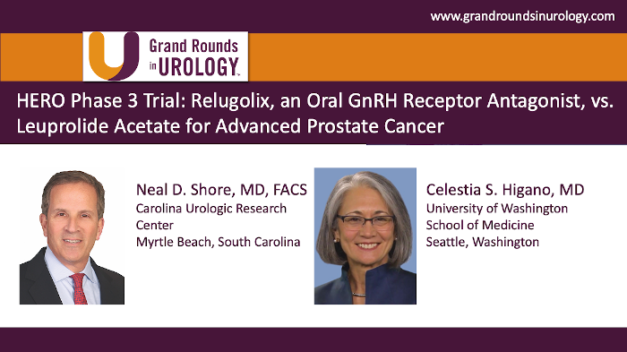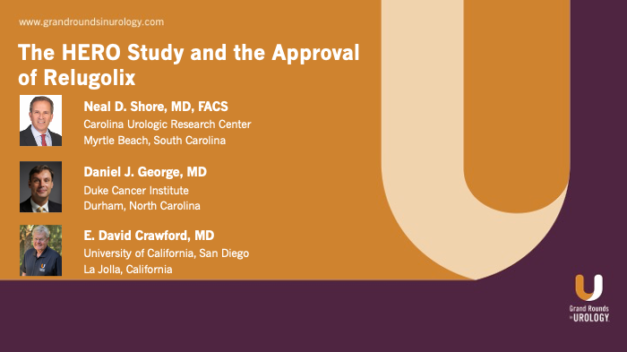HERO Phase 3 Trial: Relugolix vs. Leuprolide Acetate for Advanced Prostate Cancer
Neal D. Shore, MD, FACS, Medical Director for the Carolina Urologic Research Center, presents the key aspects of the HERO phase 3 trial. The Hero trial looked at Relugolix, an oral GnRH receptor antagonist, versus Leuprolide Acetate for the treatment of advanced prostate cancer. Following this in an interview with Celestia S. Higano, MD, section editor of the ADT Next Generation Learning Center on Grand Rounds in Urology, about the study’s findings, and the implications that this exciting new development in prostate cancer treatment could have in the field of urology.
Read More


